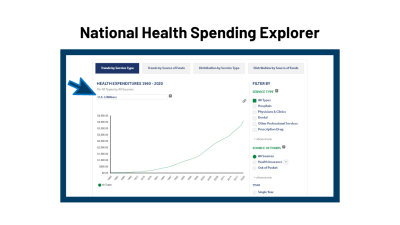 National Health Spending Explorer
Interactive
National Health Spending Explorer
Interactive
The Health Spending Explorer on the Peterson-KFF Health System Tracker helps users examine five decades worth of numbers documenting expenditures by federal and local governments, private insurers, and individuals on 15 categories of health services, including hospitals, physician and clinic care, and prescription drugs.